In the most award-winning series at the Emmys, sin is not sweetened to make it more attractive, but it is shown in its most repulsive light. Is this a glorification of evil, or its complete opposite?
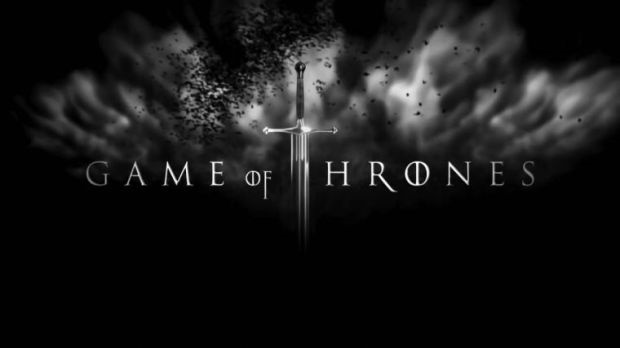 George Martin's Game of Thrones introduces us to an obscure world.
George Martin's Game of Thrones introduces us to an obscure world.
The recent Emmy awards made “Game of Thrones” the most award-winning series of all time. This cult phenomenon shows the extent to which people find the Bible’s moral diagnosis of humanity far more understandable than the inspiring stories about overcoming moral challenges that seem to fascinate many Christians. The dark world described in George Martin’s epic saga – first in the books and now on TV– has been rejected by many Christians. Many cannot stand the cruelty of these stories full of sex and violence, where sin is not sweetened to make it more attractive, but is shown in its most repulsive light. Is this a glorification of evil, or its complete opposite?
When G. R. R. Martin’s (Bayonne, New Jersey, 1948) novels are described as fantasy, people immediately think of an imaginary world that has nothing to do with reality. The first impression of “Game of Thrones” is, however, that of a medieval world. It is reminiscent of the “Lord of the Rings” by J. R. R. Tolkien (1892-1973) but, even though there are dragons and dwarves, they are not the fantastical creatures that we meet in Middle Earth. Here there are no elves or orcs. In Westeros, everything is very similar to our own world.
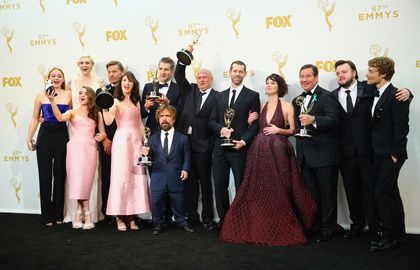 After the 2016 Emmys, the series have become the most honored ever.
After the 2016 Emmys, the series have become the most honored ever.The books of “Songs of Ice and Fire” – the original title of Martin’s novels– are detailed, exciting and full of surprises, but they are a far cry from the magical world of the “Chronicles of Narnia” by C.S. Lewis. This is closer to the “sword and sorcery” genre, even though there are no heroes like Conan – the character created by Robert Howard in 1950 and popularised by the comic–. The characters are seeking a different type of power. Its symbol is the throne, just as Tolkien uses a ring, but the clashes between the clans that are vying for that throne have more of a Shakespearean psychological complexity than the clash between good and evil of “The Hobbit”.
NEITHER HEROES, NOR VILLAINS
As in all good stories, the secret is not in the action, but in the characters – that is what films seem to sometimes forget nowadays, and these unending series bring back to the fore–. We are attracted to this story, not so much by its plot, but by its characters’ personalities, which reflect the fall of humanity. There are no heroes or villains. Even though the Starks try to be noble, when they are confronted with the Lannisters, they become arrogant and evil. “There is no one righteous, not even one– as Paul says to the Romans (3:10)–, there is no one who does good, not even one.” (v. 12).
This is because there is no magical object to find or destroy – as in the one ring of power of the Dark Lord Sauron–, the Iron Throne acts as “a psychological amplifier” – to use the expression coined by Professor Tom Shippey in reference to Tolkien’s story –, that makes people do whatever they have to do in order to achieve the desires of their heart, symbolised in that Throne. It has the power to enslave, corrupting even those who want it in order to achieve freedom, security and justice.
 The fundamental question in the Bible is the same as in the series: Who is in the throne?
The fundamental question in the Bible is the same as in the series: Who is in the throne?The original temptation of humanity in Eden was about wanting to be like God and thereby gain power over our destiny (Genesis 3). Instead of accepting our finiteness and dependency, we desperately run after the delusion of being able to control our own lives. That “cosmic insecurity” that Niebuhr speaks about, creates a “will-to-power”. In any culture, in which God is absent – the North American theologian of the mid twentieth century observes–, sex, money and politics fill that void. This is exactly what we see in “Game of Thrones”.
THE ABSENT GOD
“Doubtless, religious faith in “Game of Thrones” plays a crucial role in the behaviour of the characters and in many of the events that take place throughout the saga”– says Fabián Rodríguez in the Argentinean website for the series–. The main religion in Westeros is called the Faith. Martin says that he took his inspiration from the Catholic Church in the Middle Ages. Instead of a three-person god, they worship the Seven, another multiple representation of a single god.
In interviews, the author has said that he is a “non-practicing Catholic”. He thinks that many believe him to be an atheist or agnostic, but he finds religion and spirituality fascinating. He says that he would like to believe that there is something else out there. While Tolkien imagines a world without temples, priests and cults – which he describes as “pre-Christian” –, the people living in the north of Westeros worship the Ancient Gods, while in the centre and the south they continue to follow the Faith of the Seven. The places of prayer are called “septs” and the monks “septons” or “septas”, according to gender.
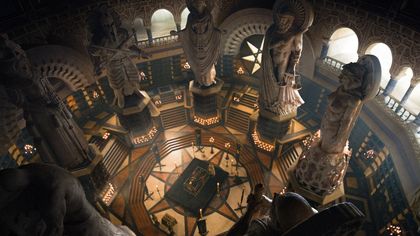 Religion has its role in Game of Thrones.
Religion has its role in Game of Thrones. “The High Septon once told me that as we sin, so do we suffer. If that’s true, Lord Eddard, tell me… why is it always the innocents who suffer most, when you high lords play your game of thrones?”. It is as if the character becomes the mouthpiece for Martin, who said in an interview that he had never been satisfied with the answers people gave him about god. He asks how there can be a good and loving god when there is so much violence and pain in the world.
In this regard, even though there is a spiritual dimension in this universe – whereby piety occupies a central role in the life of certain characters and is suggested by the presence of the monsters living in the confines of the earth–, it is men and women that are feared and honoured. The gods may or may not be there, but it is the decisions of selfish and cowardly men that shape history. There may be a dark power on the horizon, but there are forces of evil in the human heart that explain everything.
THE INSECURE KING
The Bible also presents us with a game of thrones. This is not only in the history of the monarchy in the book of Kings, but also in the story of men like Nebuchadnezzar, who wanted to rule the world. It is not strange that Daniel tells us that the king had problems sleeping (2:1-3). He dreamt of a figure that rose up over the kingdoms of the Earth, but which had “feet of clay”. The mere idea that his empire could come crashing down made him wake up in a state of panic. Anxiety and fear accompany the desire for power, even though the powerful do not like to recognise their weakness.
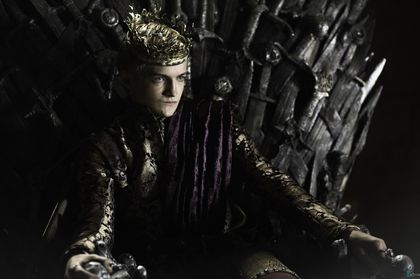 Evil seems to have the last word in this world.
Evil seems to have the last word in this world. Niebuhr says that “Man is insecure and involved in natural contingency; he seeks to overcome his security by a will-to-power which overreaches the limits of human creatureliness”. The truth is that we have little control over our life. We do not choose where we are born or who our family is, the education we will receive, the body we have, or what our talents, capacity and circumstances are going to be. Who we are and what we have, we owe to Another.
Nebuchadnezzar’s counsellors were not able to interpret his dream. It was a court official, a Jewish exile, who eventually provided an interpretation (Daniel 2:31-35). Through him, God tells the king that only one kingdom will remain on earth and that will be God’s own (v.44). Although we have the impression of controlling our lives, there is only one supreme God, both sovereign and judge, who is the “King of kings”.
THE FOLLY OF POWER
We think that what we have we owe to our intelligence, experience and hard work, but even the things that make us proud, are not solely down to our own achievements. We owe them to contacts, family and a whole series of factors that, in our ignorance, we call luck. “For who makes you different from anyone else? What do you have that you did not receive? And if you did receive it, why do you boast as though you did not?” (1 Corinthians 4:7).
When Nebuchadnezzar is in his palace, he has another more terrifying dream. He sees a huge tree, the top of which touches the sky, can be seen from the ends of the earth, and provides food for all (Daniel 4:11-12). All of a sudden a voice is heard calling for it to be cut down because “the Most High is sovereign over all kingdoms on earth and gives them to anyone he wishes.” (24-27).
One of the great ironies in life is that when man tries to be something other than just human, he becomes less human. In his madness, Nebuchadnezzar behaves like an animal. Being your own god, living for your own power and glory, makes you less rather than more human. As in “Game of Thrones”, pride makes depredators, not human beings.
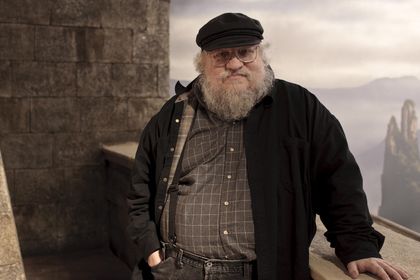 George Martin says he is a non-practicing Catholic.
George Martin says he is a non-practicing Catholic.
AN UNSHAKEABLE KINGDOM
It is only when Nebuchadnezzar looks up to heaven that his reason returns to him (34-36). We have to humble ourselves, instead of becoming embittered – as Martin does when he thinks of the injustices and suffering of life–, to discover the grace of that good and loving God, who is revealed in Jesus Christ. He gave up his power to come to this world and serve us until death (Philippians 2:4-10).
That is our only salvation: to give ourselves up to him. There is no other security than that which comes from his love and mercy.
Let’s admit that we do not have control over our life and that His is the power and the glory. The kingdoms of this world will pass away, but His Kingdom will remain forever.

Las opiniones vertidas por nuestros colaboradores se realizan a nivel personal, pudiendo coincidir o no con la postura de la dirección de Protestante Digital.
Si quieres comentar o